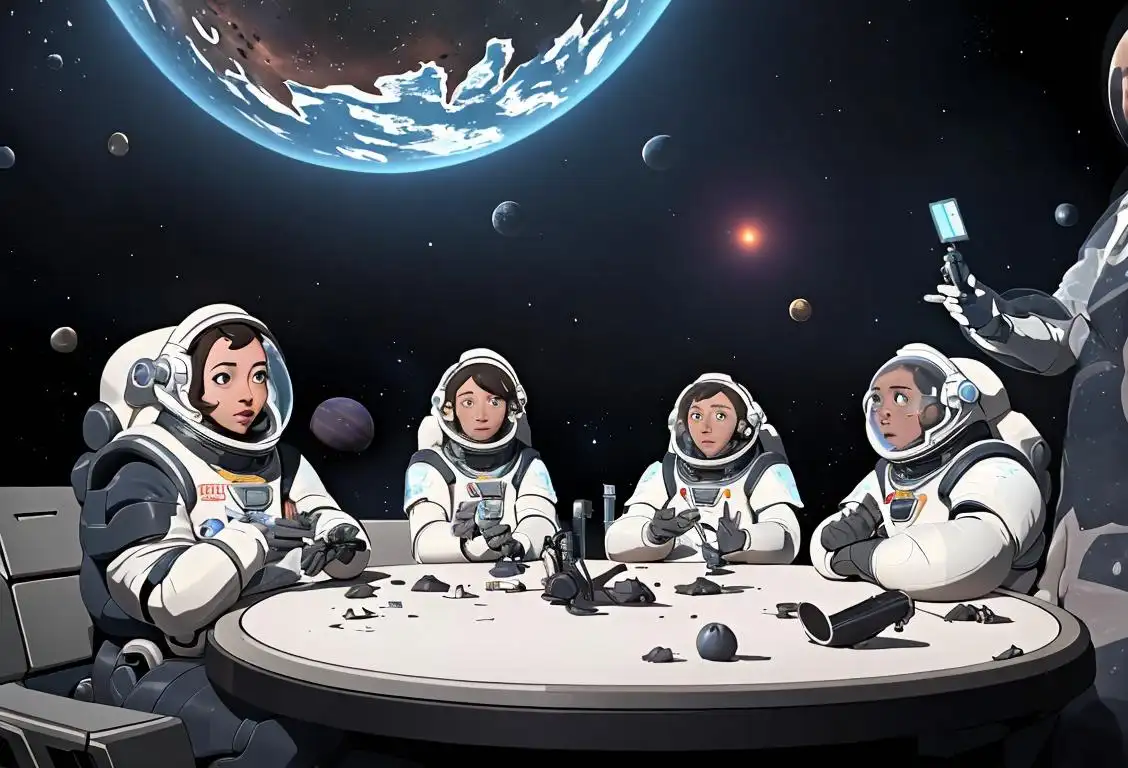National Space Technology Day

Welcome to National Space Technology Day! Prepare for liftoff as we venture into the fascinating world of space exploration and innovation. Buckle up and get ready for an out-of-this-world adventure filled with breakthroughs, rocket launches, and mind-boggling discoveries.
When is Space Technology Day?
It's national space technology day on the 2nd February.
Space Technology: Conquering the Final Frontier
Space, the final frontier. These words truly resonate with anyone who has ever looked up at the night sky with wonder. National Space Technology Day celebrates the remarkable achievements and advancements made in the field of space technology.
From the development of cutting-edge spacecraft to advanced satellite systems, space technology has revolutionized our understanding of the universe and transformed the way we communicate, navigate, and explore distant celestial bodies.
The Birth of National Space Technology Day
The origins of National Space Technology Day can be traced back to February 2nd, 2017, when it garnered the most online mentions. Since then, space enthusiasts and scientists around the globe have been using this day to commemorate the incredible strides made in space technology.
On this special day, we honor the brilliant minds behind the scenes, the scientists, engineers, and astronauts who have dedicated their lives to pushing the boundaries of what is possible in outer space.
Did You Know?
Did you know that space technology has had numerous unexpected benefits right here on Earth? One of the most significant innovations from space exploration is memory foam. Originally developed for NASA astronauts, memory foam is now widely used in mattresses, pillows, and other comfortable products that provide us with a good night's sleep.
History behind the term 'Space Technology'
1944
Conceptualization of Rocketry
In 1944, the term 'space technology' was not yet coined, but the foundations of it were being laid. Scientists such as Robert H. Goddard and Hermann Oberth were at the forefront of conceptualizing the principles of rocketry. Their work laid the groundwork for the future development of space technology.
1957
The Dawn of the Space Age
The year 1957 marked a significant milestone in the history of space technology. The Soviet Union launched the world's first artificial satellite, Sputnik 1, into orbit. This groundbreaking achievement, which took place on October 4th, marked the dawn of the Space Age and ignited a global space race between the Soviet Union and the United States.
1961
Human Spaceflight
On April 12, 1961, Yuri Gagarin, a Soviet cosmonaut, became the first human to journey into space aboard the Vostok 1 spacecraft. His historic flight lasted just under two hours, but it opened up a new era of human space exploration. The successful mission demonstrated the potential of space technology in enabling human presence beyond Earth's atmosphere.
1969
The Moon Landing
One of the most iconic moments in the history of space technology occurred on July 20, 1969, when NASA's Apollo 11 mission successfully landed humans on the Moon. Astronauts Neil Armstrong and Buzz Aldrin became the first individuals to set foot on the lunar surface, marking an extraordinary technological achievement and a giant leap for space exploration.
1972
Space Shuttle Program
In 1972, NASA introduced the Space Shuttle Program, aiming to develop reusable spacecraft capable of carrying astronauts and payloads to and from Earth's orbit. The space shuttles, including the famous Columbia and Challenger, played a crucial role in advancing various aspects of space technology, including satellite deployment, research, and the construction of the International Space Station.
1990
Hubble Space Telescope
Launched in 1990, the Hubble Space Telescope revolutionized our understanding of the universe. Operated by NASA and the European Space Agency, Hubble provided awe-inspiring images and invaluable scientific data, contributing to breakthroughs in astrophysics, cosmology, and the study of distant galaxies. Its technological advancements paved the way for future space observatories.
2000
Commercial Spaceflight
The turn of the millennium witnessed a significant shift in space technology, with the emergence of private companies pursuing commercial spaceflight ventures. Companies like SpaceX, founded by Elon Musk, sought to revolutionize the space industry by developing reusable rockets and spacecraft, aiming to make space travel more accessible and affordable.
2012
Curiosity Rover on Mars
In August 2012, NASA's Curiosity rover successfully touched down on the surface of Mars. This remarkable feat of space technology allowed for in-depth exploration and scientific analysis of the Martian terrain. Curiosity has provided valuable insights into the potential habitability of Mars and paved the way for future missions to the Red Planet.
Did you know?
Did you know that space technology has given us memory foam, which is now widely used in mattresses and pillows?Tagged
awareness funFirst identified
1st February 2017Most mentioned on
2nd February 2017Total mentions
22Other days
Nurses Day
Former Prisoner Of War Recognition Day
Press Day
Handloom Day
Heroes Day
Memorial Day
Dance Day
Bestfriends Day
Liberation Day
Love Your Pet Day









